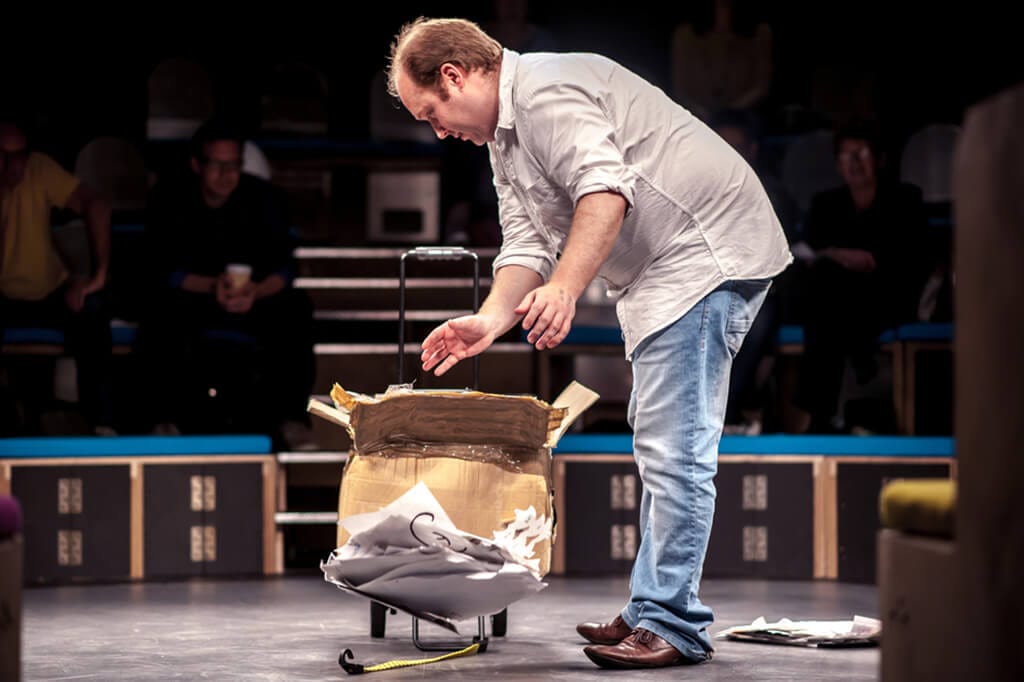Poignant, funny, serious, naive, sophisticated… Every Brilliant Thing is an outstanding piece of theatre. The venue, a pop-up theatre that is assembled and taken down at each location, is small and intimate, the perfect setting for this play that is incredibly wide-reaching, but incredibly intimate at the same time. The play is performed in the round, as a monologue, but requires audience participation throughout, strengthening the bond between actor and audience as we become even more involved in the developing plot.
Every Brilliant Thing tells the story of a seven-year-old whose mother attempts to commit suicide – not understanding why someone would want to end their life, he takes it upon himself to write a list of all the good things in the world, to remind her what there is to live for. As he grows up, the list is forgotten, re-discovered, lost and found again – the story is sometimes a little contrived, but it’s also incredibly sweet, packed with the kind of coincidences we want to believe in.
Donahoe’s affable persona tells us his life story, acting out important scenes – like, for example, the death of his childhood dog – with the help of audience members, who take on various roles such as a guidance councillor, his father, his girlfriend and the vet who puts his dog down. There’s a lot of room for improvisation by audience members – in any show with audience interaction, there are going to be differences between each performance, but in this show there is more scope for exploration than most. The moments when Donahoe picks an audience member out of the crowd are, perhaps surprisingly, some of the most poignant of the whole show: early on, he finds someone to play his seven-year-old self opposite Donahoe as his father – all the audience member has to say is ‘why?’ after everything Donahoe says. This starts off funny, something we all recognise from our own conversations with curious children, but soon takes a turn for the serious: “Buckle your seatbelt.” “Why?” “Because we’re going to the hospital.” “Why?” “Because that’s where your mum is.” “Why?” “Because she hurt herself.” “Why?” “Because she’s sad.” “Why?”
One hour long, without an interval, the play is short enough to remain captivating – perhaps even too short. We leave wanting to know more – we are reminded of the questions that are in the back of our mind, but we want answers, and this play does not offer them. It is so powerful because it is both complex and simple at once – as, indeed, are the topics it covers: love, depression, suicide. Beginning by exploring a seven-year-old’s experience of death, and working through his adolescence and adulthood, the show is stunningly realistic, reflecting both the inevitability and incomprehensibility of death. In the character’s life, death is something to be feared, but also something that can potentially be tackled with a simple list: ice cream, karate movies, people falling over. Every Brilliant Thing reminds us of this duality, that although life can be sad, dark, haunted by depression and fear of death, it can also be filled with beautiful, brilliant things – and this play is one of them.

